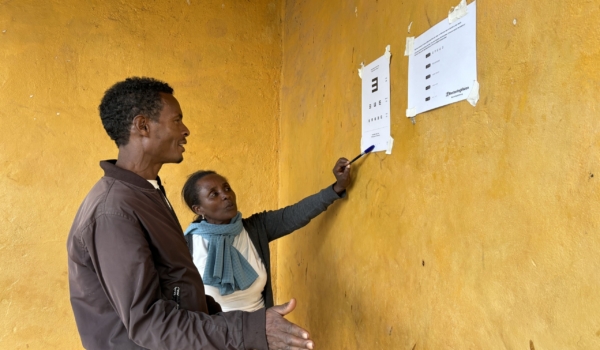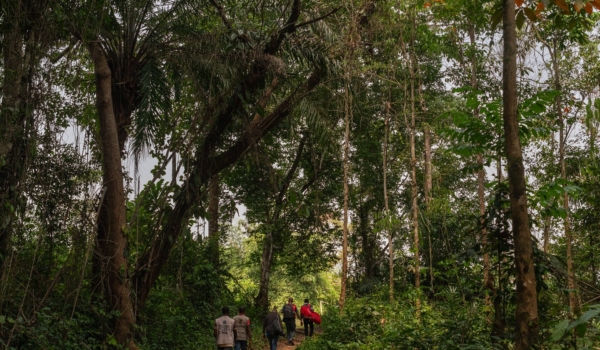By the time Rachel Saykpah began overseeing a cadre of community health volunteers during the 2014-2015 Ebola outbreak in West Africa, she had already been exposed to the disease twice. Her initial feelings of fear and stigma were quickly quelled by one of her neighbors, a crucial member of the disease surveillance team: the contact tracer.
Contact tracing, a control measure deployed to halt the transmission of an outbreak, has been used all over the globe to fight infectious diseases like Ebola, tuberculosis, smallpox, and now, COVID-19. Because contact tracing initiatives rely heavily on building and maintaining rapport with patients, the most effective tracers are not necessarily those with a traditional medical background—but rather individuals who have cultural competency, empathy, and most importantly, deep experience engaging with the community.
“It is important that contact tracers come from the communities they serve because they will already have an established relationship with their neighbors,” says Rachel. “This makes it easier for a tracer to move through the community, gather personal health information, and identify contacts. If the tracers don’t have the trust of the community, people will not disclose personal details, making their role very challenging.”
Rachel, who supports training coordination and quality control efforts for Liberia’s National Community Health Assistant Program, was hired by the country’s National Red Cross to oversee a cadre of 70 Ebola contact tracers between 2014-2015. She trained them to investigate Ebola cases, identify close contacts of diagnosed patients, and monitor those individuals twice daily throughout the 21-day incubation period. As a trusted source of information for their neighbors, contact tracers also take on the unofficial role of counselor and educator—consoling patients, fighting misconceptions, and raising awareness about the importance of containing the spread of disease.
“Contact tracers are also health promoters,” explains Rachel. “When education around prevention and control measures are provided on a daily basis, community members feel more empowered to participate.”
To prevent further spread of disease, infected patients and their contacts are required to isolate. Such isolation tactics render extended interruptions to everyday life, including time with family, social gatherings, and, sometimes, employment. Understanding and acceptance among community members of their individual responsibility in protecting their friends, family, and neighbors from infection is critical for patients and contacts.
“Contact tracing can only be effective when communities buy in,” explains Rachel. “When you tell someone they need to isolate, it is scary. People have a lot of questions. It is important [patients] know they won’t be abandoned, they will have a designated person to support them. The role of a contact tracer extends well beyond case investigation and follow-up.”
As countries continue to grapple with COVID-19, contract tracing—and widespread support from the community—will be crucial to ending the pandemic. Though the long-term effects of COVID-19 on Liberia are still unknown, the Ministry of Health is proactively working to lessen its impact by training and equipping 5,000 community and frontline health workers to conduct household-level surveillance and contact tracing to rapidly identify and isolate suspected and confirmed cases at the community level.
Leveraging her experience overseeing community health teams during Ebola, Rachel is currently supporting the county and district roll-out of the Ministry of Health of Liberia’s COVID-19 response curriculum, which was developed with support of Last Mile Health and other stakeholders. The curriculum is focused on community engagement to promote physical distancing; infection prevention and control measures; water, sanitation, and hygiene best practices; household-level surveillance; and safe referral, isolation, and contact tracing for suspected cases. Rachel and her colleagues have already trained five cohorts of community health supervisors, assistants, and volunteers in six districts.
Like Ebola, COVID-19 is causing many people to feel isolated, scared, and confused, making community mobilization and sensitization even more critical. Armed with the confidence and deep knowledge of their community, contact tracers are breaking the chain of transmission and transforming the well-being of those around them.





